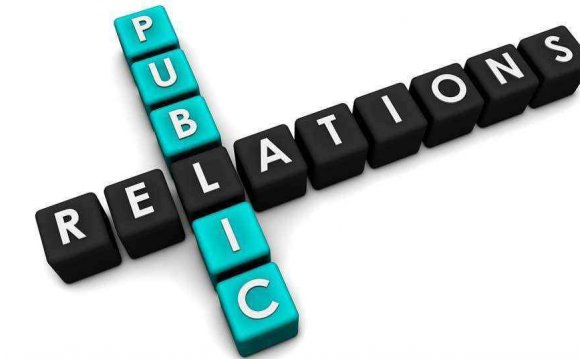
All 18 displayed
- Establish and maintain effective working relationships with clients, government officials, and media representatives and use these relationships to develop new business opportunities.
- Write interesting and effective press releases, prepare information for media kits, and develop and maintain company internet or intranet web pages.
- Identify main client groups and audiences, determine the best way to communicate publicity information to them, and develop and implement a communication plan.
- Assign, supervise, and review the activities of public relations staff.
- Develop and maintain the company's corporate image and identity, which includes the use of logos and signage.
- Respond to requests for information about employers' activities or status.
- Manage communications budgets.
- Direct activities of external agencies, establishments, and departments that develop and implement communication strategies and information programs.
- Draft speeches for company executives and arrange interviews and other forms of contact for them.
- Evaluate advertising and promotion programs for compatibility with public relations efforts.
- Manage special events, such as sponsorship of races, parties introducing new products, or other activities the firm supports, to gain public attention through the media without advertising directly.
- Facilitate consumer relations or the relationship between parts of the company, such as the managers and employees, or different branch offices.
- Formulate policies and procedures related to public information programs, working with public relations executives.
- Establish goals for soliciting funds, develop policies for collection and safeguarding of contributions, and coordinate disbursement of funds.
- Confer with labor relations managers to develop internal communications that keep employees informed of company activities.
- Produce films and other video products, regulate their distribution, and operate film library.
- Observe and report on social, economic, and political trends that might affect employers.
- Maintain company archives.
Technology Skills
Hot Technology — a technology requirement frequently included in employer job postings.
Knowledge
5 of 8 displayedAll 8 displayed
- English Language — Knowledge of the structure and content of the English language including the meaning and spelling of words, rules of composition, and grammar.
- Customer and Personal Service — Knowledge of principles and processes for providing customer and personal services. This includes customer needs assessment, meeting quality standards for services, and evaluation of customer satisfaction.
- Communications and Media — Knowledge of media production, communication, and dissemination techniques and methods. This includes alternative ways to inform and entertain via written, oral, and visual media.
- Sales and Marketing — Knowledge of principles and methods for showing, promoting, and selling products or services. This includes marketing strategy and tactics, product demonstration, sales techniques, and sales control systems.
- Administration and Management — Knowledge of business and management principles involved in strategic planning, resource allocation, human resources modeling, leadership technique, production methods, and coordination of people and resources.
- Personnel and Human Resources — Knowledge of principles and procedures for personnel recruitment, selection, training, compensation and benefits, labor relations and negotiation, and personnel information systems.
- Clerical — Knowledge of administrative and clerical procedures and systems such as word processing, managing files and records, stenography and transcription, designing forms, and other office procedures and terminology.
- Computers and Electronics — Knowledge of circuit boards, processors, chips, electronic equipment, and computer hardware and software, including applications and programming.
Skills
5 of 20 displayedAll 20 displayed
- Speaking — Talking to others to convey information effectively.
- Active Listening — Giving full attention to what other people are saying, taking time to understand the points being made, asking questions as appropriate, and not interrupting at inappropriate times.
- Reading Comprehension — Understanding written sentences and paragraphs in work related documents.
- Social Perceptiveness — Being aware of others' reactions and understanding why they react as they do.
- — Identifying complex problems and reviewing related information to develop and evaluate options and implement solutions.
- Judgment and Decision Making — Considering the relative costs and benefits of potential actions to choose the most appropriate one.
- Time Management — Managing one's own time and the time of others.
- Monitoring — Monitoring/Assessing performance of yourself, other individuals, or organizations to make improvements or take corrective action.
- Systems Analysis — Determining how a system should work and how changes in conditions, operations, and the environment will affect outcomes.
- Systems Evaluation — Identifying measures or indicators of system performance and the actions needed to improve or correct performance, relative to the goals of the system.
- Management of Personnel Resources — Motivating, developing, and directing people as they work, identifying the best people for the job.
- Negotiation — Bringing others together and trying to reconcile differences.
- Service Orientation — Actively looking for ways to help people.
- Active Learning — Understanding the implications of new information for both current and future problem-solving and decision-making.
- Management of Financial Resources — Determining how money will be spent to get the work done, and accounting for these expenditures.
- Instructing — Teaching others how to do something.
Abilities
5 of 15 displayedAll 15 displayed
Source: www.onetonline.org














